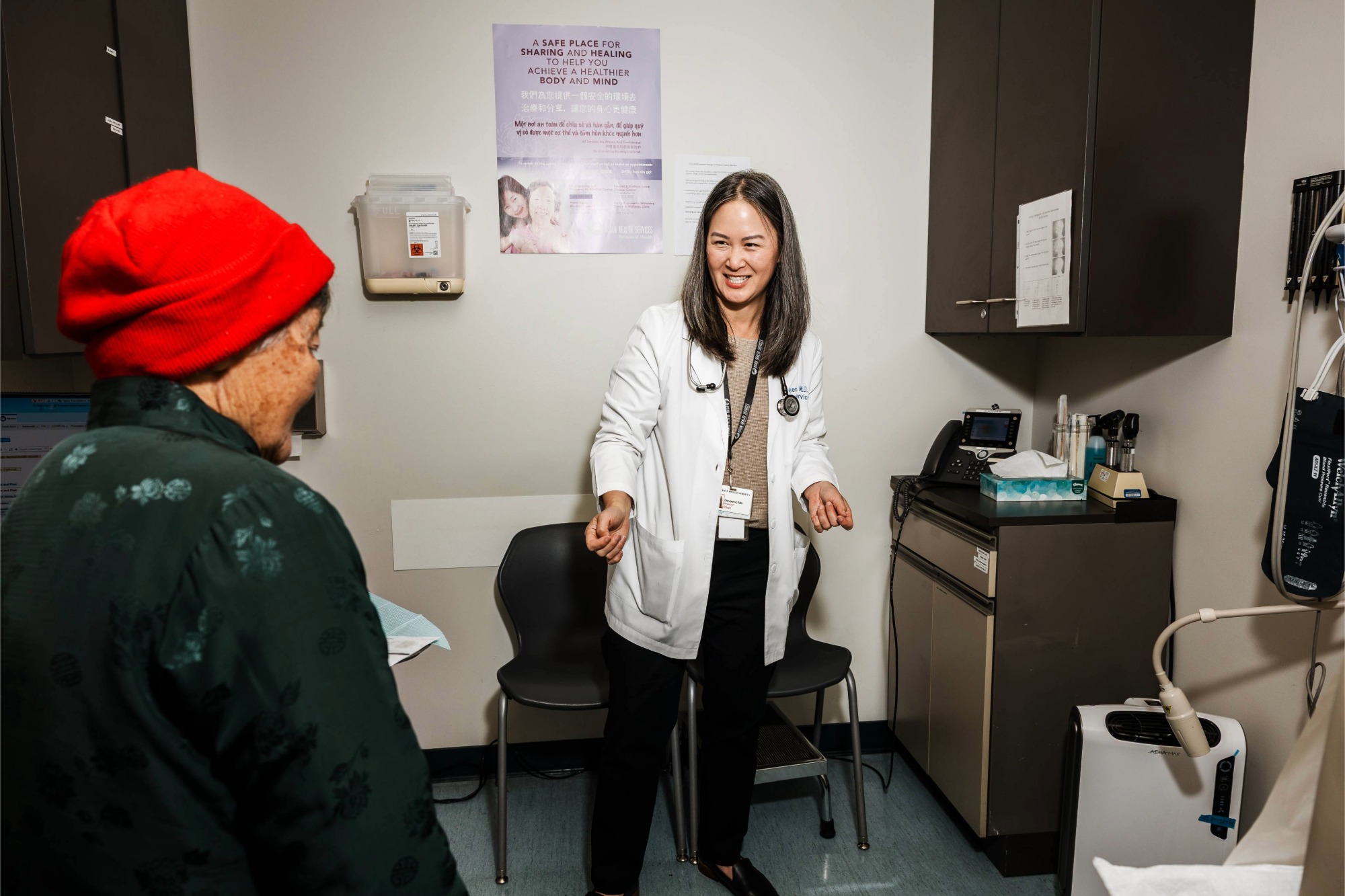Download the fact sheet
Jump to All Downloads & LinksAs the CalAIM (California Advancing and Innovating Medi-Cal) program’s Enhanced Care Management and Community Supports reach their fourth year since statewide launch in 2022, how are these programs being experienced by the people they are intended to support? In a major research project supported by CHCF, Los Angeles research firm EVITARUS interviewed 99 people with complex needs and eight focus groups with caregivers across Alameda, Fresno, Humboldt, and Los Angeles counties.
In the full report In Their Own Words: What Californians with Multiple Health and Social Needs Say About Their Care, published in June 2025, participants described their experiences with the health care system.
This fact sheet centers the perspectives of those who need support to live independently and their caregivers. Access to in-home and community-based services, expanded social and caregiver support, and trusted care managers are essential for these individuals to navigate complex systems and remain in their homes and communities. For managed care plans and provider implementers, involving people with lived experience as equal partners in program design and implementation increases the likelihood that these services will truly meet people’s needs.
Supports People Need Most to Live Independently
Research shows that older adults and younger people living with disabilities have these clear needs:
- Strong preference for in-home and community-based services to help people age in place and avoid moving to a nursing home.
- Both older adults and caregivers need social services and other supports .
- Care managers and navigators are essential due to system complexities and digital barriers .
A Story That Illustrates How Care Managers Are a Bridge to Stability
Consider this participant’s experience: A 64-year-old Latina in Los Angeles County finds hope through her care manager after decades of trauma, substance use, and homelessness. She calls him her “guardian angel” who listens without judgment, notices unspoken pain, and helps her navigate a system that has long felt overwhelming and cold. With his support, she secured stable housing in a tiny home for the first time after years of instability.
Now, aging brings new challenges: severe joint deterioration that makes it difficult to get around, upcoming surgeries, and a fear of falling. Decades of substance abuse, along with mental health conditions, such as schizophrenia, bipolar disorder, and hallucinations, leave her isolated, anxious, and fearful of others.
However, her care manager’s steady support, which includes arranging rides, checking in, and general encouragement, helps her take small steps toward a healthier life. Now, she is attending appointments, considering therapy, and working to stay sober. For the first time, she imagines cooking in her own kitchen, walking in a park, and finding peace in later life.
Promising Approaches to Better Care
The fact sheet highlights three resources to improve understanding of the services available to people needing support to live independently:
- Review these explainers about four home and community-based services programs that are offered through Medi-Cal.
- Check out California’s largest program that delivers long term services and supports.
- Learn from the experiences of Cardea Health in Oakland and Kern County Family Health Services in Bakersfield, two organizations using Medi-Cal-funded services to help older adults and their caregivers get the help they need to live well in the community.
Read the Fact Sheet
Authors & Contributors
Xinran Wang
EVITARUS
Caden Schepps
EVITARUS





